Discover Grants & Funding for Commercialization in Quebec for 2026
Propel your projects with marketing grants in Quebec.
Get tailored funding to implement your marketing strategies and boost your growth. Accelerate your success by conquering new markets with targeted financial support.
288 opportunities available
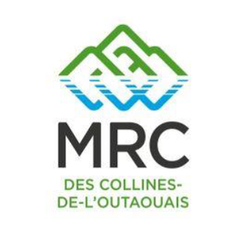
Loans and Capital investmentsClosed
MRC Collines-de-l'Outaouais — Local Investment Fund (FLI) and Solidarity Fund (FLS)
MRC des Collines-de-l'OutaouaisLocal funds support sustainable business development in the Outaouais
Eligible Funding
- Maximum amount : 100,000 $
- Up to 50% of project cost
Eligible Industries
- Retail trade
- Professional, scientific and technical services
- Management of companies and enterprises
- Health care and social assistance
Types of eligible projects
CommercializationConstruction and Renovation Business BuyoutDigital Transformation
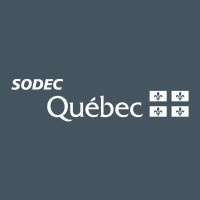
Grant and FundingOpen
SODEXPORT – Component 2.2 : Support for touring music and variety shows abroad
Société de développement des entreprises culturelles (SODEC)Financial support for Quebec music and variety show tours abroad
Eligible Funding
- Maximum amount : 25,000 $
- Up to 40% of project cost
Eligible Industries
- Information and cultural industries
- Arts, entertainment and recreation
Types of eligible projects
Commercialization

Tax CreditsOpen
Quebec book publishing tax credit
Société de développement des entreprises culturelles (SODEC)Tax credit for publishing Quebec books and international sales
Eligible Funding
- Maximum amount : 437,500 $
- Up to 35% of project cost
Eligible Industries
- Information and cultural industries
Types of eligible projects
Commercialization

Grant and FundingLoans and Capital investmentsOpen
MRC La Matanie — FLI Succession Stream
MRC La MatanieGrant program offers financial support for business development activities
Eligible Funding
- Maximum amount : 250,000 $
Eligible Industries
- Retail trade
- Accommodation and food services
Types of eligible projects
CommercializationConstruction and Renovation Business BuyoutInnovation
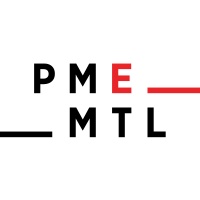
Eligible Funding
- Maximum amount : 15,000 $
Eligible Industries
- All industries
Types of eligible projects
Commercialization
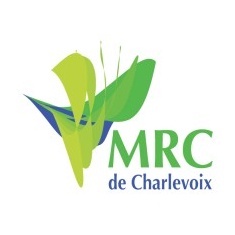
Grant and FundingLoans and Capital investmentsOpen
MRC Charlevoix — Social Economy Business Development Fund (FDEÉS)
MRC CharlevoixFunding support for viable social economy enterprises projects
Eligible Funding
- Maximum amount : 15,000 $
- Up to 80% of project cost
Eligible Industries
- Health care and social assistance
Types of eligible projects
CommercializationTechnologyInnovation

Grant and FundingOpen
Musicaction — International Commercialization – Stream 1 Exploring a Target Market
MusicactionSupports Canadian artists' international market exploration and integration
Eligible Funding
- Maximum amount : 25,000 $
- Up to 75% of project cost
Eligible Industries
- Arts, entertainment and recreation
Types of eligible projects
Commercialization

Grant and FundingClosed
Support fund for the development of tourism offers
Société des Attractions Touristiques du Québec (SATQ)$5M fund supporting Quebec tourism development initiatives
Eligible Funding
- From $25,000 to $60,000
Eligible Industries
- Arts, entertainment and recreation
- Accommodation and food services
Types of eligible projects
Commercialization
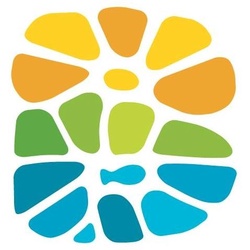
Grant and FundingLoans and Capital investmentsOpen
MRC Les Basques — Business Assistance Fund / FDE
MRC Les BasquesNon-repayable financial support for business creation, growth and succession
Eligible Funding
- No Condition
Eligible Industries
- All industries
Types of eligible projects
Commercialization
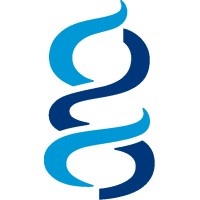
Researchers And FacilitiesPartnering and CollaborationGrant and FundingClosed
Genomics Innovation to Commercialization Program
Génome QuébecSupports commercialization of genomics research through industry collaboration
Eligible Funding
- From $300,000 to $900,000
Eligible Industries
- Manufacturing
- Professional, scientific and technical services
- Educational services
- Health care and social assistance
Types of eligible projects
CommercializationTechnologyInnovation
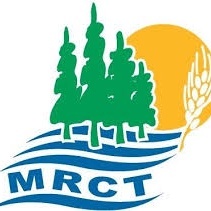
Grant and FundingOpen
MRC Témiscamingue — Créavenir - Desjardins
MRC TémiscamingueSupport for startups with credit and tailored financing
Eligible Funding
- Maximum amount : 15,000 $
Eligible Industries
- All industries
Types of eligible projects
Commercialization
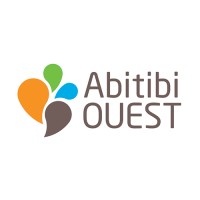
Grant and FundingOpen
MRC Abitibi-Ouest — Digital Transition Fund
MRC Abitibi-OuestInternational market expansion and support for businesses
Eligible Funding
- No Condition
Eligible Industries
- Agriculture, forestry, fishing and hunting
- Manufacturing
- Wholesale trade
- Retail trade
Types of eligible projects
CommercializationDigital Transformation
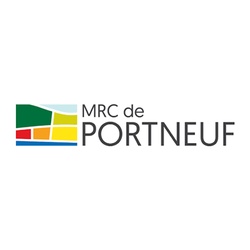
Loans and Capital investmentsOpen
MRC Portneuf — Joint Investment Fund FLI/FLS
MRC PortneufJoint Investment Policy supporting Quebec enterprises and employment
Eligible Funding
- Maximum amount : 150,000 $
- Up to 50% of project cost
Eligible Industries
- Other services (except public administration)
- Public administration
Types of eligible projects
CommercializationConstruction and Renovation Business BuyoutDigital Transformation
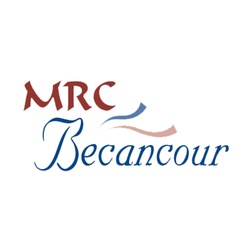
Grant and FundingOpen
MRC Bécancour — Business Support Fund (BSF)
MRC BécancourBusiness Support Fund for investment project preparation assistance
Eligible Funding
- Maximum amount : 10,000 $
- Up to 50% of project cost
Eligible Industries
- Manufacturing
- Retail trade
- Accommodation and food services
- Other services (except public administration)
Types of eligible projects
Commercialization

Grant and FundingOpen
SODEXPORT — Component 2.1: Support for business opportunities and promotion abroad
Société de développement des entreprises culturelles (SODEC)Supports Quebec music businesses expanding and promoting internationally
Eligible Funding
- Maximum amount : 20,000 $
- Up to 50% of project cost
Eligible Industries
- Information and cultural industries
- Arts, entertainment and recreation
Types of eligible projects
Commercialization
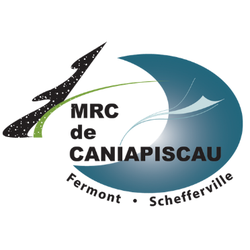
Loans and Capital investmentsOpen
MRC Caniapiscau — Joint FLI/FLS investment
MRC de CaniapiscauFunding for Quebec businesses and economic initiatives
Eligible Funding
- Maximum amount : 100,000 $
- Up to 50% of project cost
Eligible Industries
- All industries
Types of eligible projects
CommercializationConstruction and Renovation Business BuyoutDigital Transformation

Grant and FundingClosed
MRC L'Islet — FEEL
MRC de L'IsletSupport for business development in L'Islet region
Eligible Funding
- Maximum amount : 25,000 $
- Up to 40% of project cost
Eligible Industries
- All industries
Types of eligible projects
CommercializationInnovation

Grant and FundingOpen
Nordic Incubator-Accelerator — Stream 2 — Financial Assistance
Gouvernement du QuébecNordic incubator accelerates sustainable tourism projects north of 49th parallel
Eligible Funding
- Maximum amount : 400,000 $
- Up to 50% of project cost
Eligible Industries
- Arts, entertainment and recreation
- Accommodation and food services
Types of eligible projects
CommercializationEnvironment and Climate
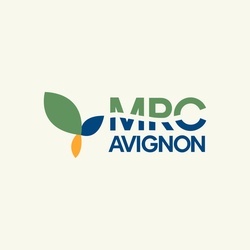
Loans and Capital investmentsOpen
MRC d'Avignon — Local Investment Funds (FLI) and Local Solidarity Funds (FLS)
MRC AvignonBusiness financing for development and job creation in Avignon
Eligible Funding
- Maximum amount : 150,000 $
- Up to 50% of project cost
Eligible Industries
- Manufacturing
- Retail trade
- Information and cultural industries
- Professional, scientific and technical services
Types of eligible projects
CommercializationEnvironment and ClimateBusiness BuyoutInnovationDigital Transformation
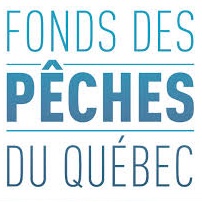
Grant and FundingClosed
Quebec Fisheries Fund — Infrastructure
Fisheries and Oceans Canada (DFO)Funds to improve sustainability in Quebec's seafood sector
Eligible Funding
- Maximum amount : 2,500,000 $
- Up to 100% of project cost
Eligible Industries
- Agriculture, forestry, fishing and hunting
Types of eligible projects
CommercializationTechnologyEnvironment and ClimateConstruction and Renovation Innovation

Grant and FundingOpen
MRC La Matanie — Business Support Program (PAE)
MRC La MatanieFinancial aid for sustainable business development in MRC La Matanie
Eligible Funding
- Maximum amount : 250,000 $
Eligible Industries
- Retail trade
- Accommodation and food services
Types of eligible projects
CommercializationBusiness BuyoutInnovation
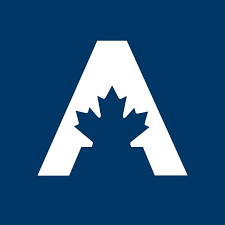
Grant and FundingOpen
MRC Beauce-Centre — Propulsion Fund
MRC Beauce-CentreFinancial support for emerging businesses in Beauce-Centre
Eligible Funding
- From $1,000 to $10,000
- Up to 50% of project cost
Eligible Industries
- All industries
Types of eligible projects
CommercializationInnovation

Grant and FundingOpen
ID Gatineau — FDEES
ID GatineauSupports innovative social economy projects in Gatineau
Eligible Funding
- From $5,000 to $30,000
- Up to 25% of project cost
Eligible Industries
- Manufacturing
Types of eligible projects
Commercialization
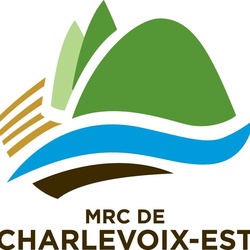
Grant and FundingClosed
MRC Charlevoix-Est — Vitalization Fund
MRC Charlevoix-EstVitalization Fund supporting Charlevoix-Est's economic revitalization projects
Eligible Funding
- Maximum amount : 150,000 $
- Up to 50% of project cost
Eligible Industries
- Educational services
- Arts, entertainment and recreation
- Public administration
Types of eligible projects
CommercializationConstruction and Renovation Innovation

Grant and FundingOpen
SODEXPORT — Component 5: Strategic initiatives
Société de développement des entreprises culturelles (SODEC)Supports major cultural export projects with international development potential
Eligible Funding
- Maximum amount : 100,000 $
- Up to 50% of project cost
Eligible Industries
- Information and cultural industries
- Arts, entertainment and recreation
Types of eligible projects
CommercializationInnovation
Discover how much grant funding is available for your business
Subsidize your projects with grants!
Use our free grant estimator to quickly identify the available grant amounts for which your company may be eligible.
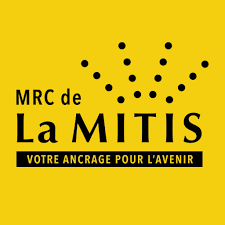
Grant and FundingClosed
Mitis MRC — Regional and Rural Fund (RRF) - Component 1
La Mitis RCMSupports regional development in agriculture, tourism, and transportation
Eligible Funding
- No Condition
Eligible Industries
- Agriculture, forestry, fishing and hunting
- Transportation and warehousing
- Educational services
- Health care and social assistance
Types of eligible projects
CommercializationEnvironment and ClimateBusiness Buyout

Grant and FundingClosed
Recyc-Québec — Beverage Container Recycling — Stream 1
Recyc-QuébecFunding for projects to manage used beverage containers
Eligible Funding
- Maximum amount : 1,000,000 $
- Up to 70% of project cost
Eligible Industries
- Manufacturing
- Administrative and support, waste management and remediation services
Types of eligible projects
Commercialization
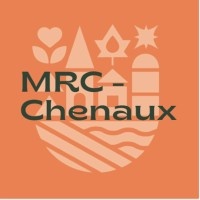
Grant and FundingOpen
MRC des Chenaux — Economic Diversification Fund (FDÉ)
MRC des ChenauxEconomic diversification fund for SMEs in MRC des Chenaux
Eligible Funding
- Maximum amount : 15,000 $
- Up to 50% of project cost
Eligible Industries
- Manufacturing
- Arts, entertainment and recreation
- Other services (except public administration)
- Public administration
Types of eligible projects
CommercializationTechnologyInnovation
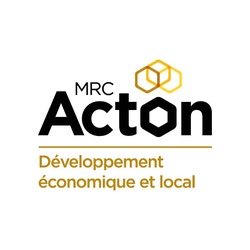
Eligible Funding
- Maximum amount : 40,950 $
Eligible Industries
- Agriculture, forestry, fishing and hunting
Types of eligible projects
CommercializationEnvironment and ClimateHuman Resources

Grant and FundingClosed
Biofood market development program — Component 2
Ministry of Agriculture, Fisheries and Food (MAPAQ)Facilitates biofood sector's access to Quebec's distribution networks
Eligible Funding
- From $50,000 to $750,000
- Up to 70% of project cost
Eligible Industries
- Agriculture, forestry, fishing and hunting
Types of eligible projects
Commercialization
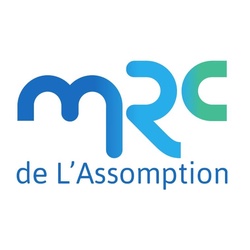
Loans and Capital investmentsOpen
MRC de L'Assomption — FLI/FLS
MRC de L'AssomptionSupports business growth and job creation in Quebec
Eligible Funding
- Maximum amount : 100,000 $
- Up to 50% of project cost
Eligible Industries
- All industries
Types of eligible projects
CommercializationConstruction and Renovation Business BuyoutInnovationDigital Transformation
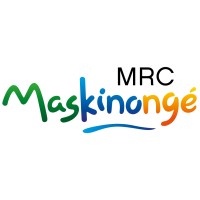
Grant and FundingClosed
MRC Maskinongé — Social Economy Fund (ES)
MRC de MaskinongéSocial Economy Fund supports community-focused entrepreneurial projects
Eligible Funding
- Maximum amount : 15,000 $
Eligible Industries
- Agriculture, forestry, fishing and hunting
- Manufacturing
- Arts, entertainment and recreation
- Other services (except public administration)
Types of eligible projects
CommercializationBusiness BuyoutInnovationDigital Transformation

Grant and FundingExpert AdviceOpen
PME MTL — Call for projects: very open to unusual businesses
PME MTLFunding and support for innovative retail projects in Villeray
Eligible Funding
- Maximum amount : 75,000 $
- Up to 20% of project cost
Eligible Industries
- Retail trade
Types of eligible projects
CommercializationEnvironment and Climate
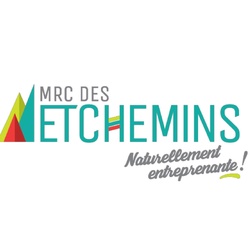
Grant and FundingClosed
MRC Les Etchemins — Call for projects: Signature innovation
MRC des EtcheminsEnhancing Les Etchemins' natural heritage through tourism development
Eligible Funding
- Maximum amount : 200,000 $
- Up to 50% of project cost
Eligible Industries
- Arts, entertainment and recreation
- Accommodation and food services
Types of eligible projects
CommercializationEnvironment and Climate

Grant and FundingOpen
Musicaction — International Event
MusicactionProgram supports Canadian artists' international career development
Eligible Funding
- Maximum amount : 60,000 $
- Up to 75% of project cost
Eligible Industries
- Arts, entertainment and recreation
Types of eligible projects
Commercialization

Loans and Capital investmentsClosed
MRC Témiscouata — Local Investment Fund (FLI) / Local Solidarity Fund (FLS)
MRC TémiscouataInvestment funds supporting Quebec's economic and employment development
Eligible Funding
- No Condition
Eligible Industries
- Manufacturing
- Professional, scientific and technical services
- Health care and social assistance
- Other services (except public administration)
Types of eligible projects
CommercializationConstruction and Renovation Business BuyoutDigital Transformation

Loans and Capital investmentsClosed
La Vallée-du-Richelieu Agricultural Microcredit Fund
RCM Vallée-Du-RichelieuInterest-free loans for agricultural business development in Vallée-du-Richelieu
Eligible Funding
- Maximum amount : 10,000 $
- Up to 20% of project cost
Eligible Industries
- Agriculture, forestry, fishing and hunting
Types of eligible projects
CommercializationTechnologyBusiness BuyoutInnovation

Grant and FundingExpert AdviceLoans and Capital investmentsOpen
RCM de la Vallée-Du-Richelieu — Futurpreneur Canada
RCM Vallée-Du-RichelieuFunding, mentorship, and support for young business founders
Eligible Funding
- Maximum amount : 60,000 $
- Up to 20% of project cost
Eligible Industries
- Agriculture, forestry, fishing and hunting
- Arts, entertainment and recreation
- Other services (except public administration)
- Public administration
Types of eligible projects
CommercializationTechnologyBusiness BuyoutInnovationDigital Transformation

Grant and FundingExpert AdviceOpening Soon
RCM Vallée-Du-Richelieu — Fonds d'appui à l'entrepreneuriat collectif (FAEC)
RCM Vallée-Du-RichelieuSupports social enterprise development through technical and financial assistance
Eligible Funding
- Maximum amount : 10,000 $
Eligible Industries
- Other services (except public administration)
- Public administration
Types of eligible projects
CommercializationInnovation

Grant and FundingExpert AdviceLoans and Capital investmentsOpening Soon
RCM Vallée-Du-Richelieu — Fonds de soutien à l'entrepreneuriat
RCM Vallée-Du-RichelieuFinancial support for business development in Vallée-du-Richelieu
Eligible Funding
- Maximum amount : 5,000 $
- Up to 20% of project cost
Eligible Industries
- Agriculture, forestry, fishing and hunting
- Manufacturing
- Retail trade
- Information and cultural industries
Types of eligible projects
CommercializationTechnologyBusiness BuyoutInnovationDigital Transformation
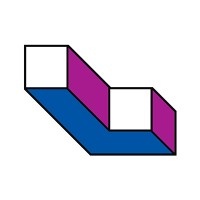
Grant and FundingOpen
Laval — Regional and Rural Fund (FRR) – Stream 2
City of LavalEnhances Laval's community life through strategic local projects
Eligible Funding
- Up to 85% of project cost
Eligible Industries
- Educational services
- Health care and social assistance
- Arts, entertainment and recreation
Types of eligible projects
CommercializationEnvironment and ClimateHuman Resources
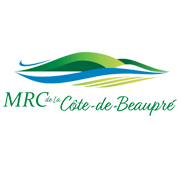
Loans and Capital investmentsOpen
MRC La Côte-de-Beaupré — Local Investment Fund (FLI) – Local Solidarity Fund (FLS)
MRC La Côte-de-BeaupréLocal funds support startups and expanding businesses with loans
Eligible Funding
- Maximum amount : 150,000 $
Eligible Industries
- Agriculture, forestry, fishing and hunting
- Construction
- Arts, entertainment and recreation
Types of eligible projects
CommercializationConstruction and Renovation

Loans and Capital investmentsOpen
MRC Bellechasse — Local Investment Fund & Local Solidarity Fund (FLI and FLS)
MRC de BellechasseFinancial support for business development in Bellechasse
Eligible Funding
- Maximum amount : 100,000 $
- Up to 49% of project cost
Eligible Industries
- All industries
Types of eligible projects
CommercializationConstruction and Renovation Business Buyout

Loans and Capital investmentsOpen
MRC Bellechasse — Bellechasse Agri-Food Investment Fund (FIAB)
MRC de BellechasseAgri-food financial aid for small Bellechasse enterprises
Eligible Funding
- Maximum amount : 20,000 $
- Up to 20% of project cost
Eligible Industries
- Agriculture, forestry, fishing and hunting
Types of eligible projects
Commercialization
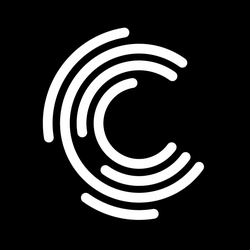
Grant and FundingClosed
MTRIC — PARTENAR-IA — Academic
Metal Transformation Research and Innovation Consortium (MTRIC)Funding for Quebec metal transformation R&D collaborations in AI
Eligible Funding
- Maximum amount : 1,500,000 $
- Up to 35% of project cost
Eligible Industries
- Mining, quarrying, and oil and gas extraction
- Manufacturing
Types of eligible projects
CommercializationInnovation

Loans and Capital investmentsOpen
RCM de la Vallée-Du-Richelieu — Local investment funds (FLI)
RCM Vallée-Du-RichelieuBusiness financing for startups, growth, and succession in Vallée-Du-Richelieu
Eligible Funding
- Up to 25% of project cost
Eligible Industries
- All industries
Types of eligible projects
CommercializationTechnologyBusiness Buyout

Grant and FundingClosed
SODEC — Support for cultural events
Société de développement des entreprises culturelles (SODEC)Support for showcasing and promoting Quebec cultural events
Eligible Funding
- Maximum amount : 400,000 $
Eligible Industries
- Arts, entertainment and recreation
Types of eligible projects
CommercializationEnvironment and Climate

Loans and Capital investmentsClosed
MRC Abitibi-Ouest — Local Investment Funds
MRC Abitibi-OuestInvestment fund for economic impact businesses in Abitibi-Ouest
Eligible Funding
- Maximum amount : 250,000 $
- Up to 20% of project cost
Eligible Industries
- All industries
Types of eligible projects
Commercialization
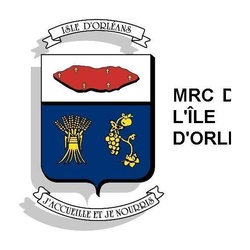
Grant and FundingOpen
MRC L’Île-d’Orléans — Capitale-Nationale Region Fund (FRCN) – Île d’Orléans Stream
MRC L'Île-d'OrléansFunding support for projects on Île d’Orléans
Eligible Funding
- Maximum amount : 75,000 $
- Up to 25% of project cost
Eligible Industries
- Agriculture, forestry, fishing and hunting
- Accommodation and food services
- Other services (except public administration)
- Public administration
Types of eligible projects
CommercializationConstruction and Renovation
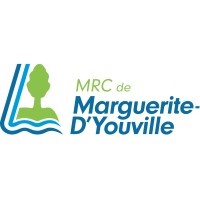
Grant and FundingOpen
MRC Marguerite-D'Youville — Business Support Fund – Stream 1
MRC de Marguerite-D'YouvilleSupport fund for startup business development in Quebec
Eligible Funding
- Maximum amount : 6,000 $
- Up to 10% of project cost
Eligible Industries
- All industries
Types of eligible projects
Commercialization
Find tailored funding for your business
Discover more grants on the helloDarwin platform
Look through over 4,000 grants, tax credits, loans and more financial aid on the helloDarwin application.

Loans and Capital investmentsOpen
MRC Bécancour — Local investment fund (FLI) - “new business” component
MRC BécancourInvestment loan for Quebec manufacturing startups under two years
Eligible Funding
- Maximum amount : 75,000 $
- Up to 25% of project cost
Eligible Industries
- Manufacturing
Types of eligible projects
CommercializationConstruction and Renovation

Partnering and CollaborationGrant and FundingLoans and Capital investmentsOpen
MRC La Matanie — Grant and Sponsorship Program
MRC La MatanieDEM offers financial support for sustainable business development
Eligible Funding
- Maximum amount : 250,000 $
Eligible Industries
- Retail trade
- Arts, entertainment and recreation
- Accommodation and food services
- Other services (except public administration)
Types of eligible projects
CommercializationBusiness BuyoutInnovation

Grant and FundingOpen
MRC L'Islet — SME Propulsion Measurement
MRC de L'IsletFinancial aid for SME growth in MRC de L'Islet
Eligible Funding
- From $3,000 to $25,000
- Up to 35% of project cost
Eligible Industries
- Manufacturing
- Accommodation and food services
Types of eligible projects
CommercializationInnovation

Loans and Capital investmentsClosed
MRC des Chenaux — Local Investment Fund (FLI) and Solidarity Fund (FLS)
MRC des ChenauxInvestment policy for supporting Quebec's economic development
Eligible Funding
- Maximum amount : 150,000 $
- Up to 50% of project cost
Eligible Industries
- Manufacturing
- Arts, entertainment and recreation
Types of eligible projects
CommercializationConstruction and Renovation Business BuyoutDigital Transformation
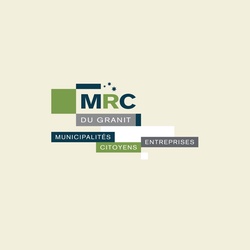
Loans and Capital investmentsOpen
MRC du Granit — FIL
MRC du GranitLocal investment fund supporting entrepreneurial development in Granit
Eligible Funding
- No Condition
Eligible Industries
- Manufacturing
Types of eligible projects
CommercializationBusiness BuyoutInnovation

Loans and Capital investmentsOpen
PME MTL — Innovation Investment Fund — Loans
PME MTLLoans for projects by Montreal-based businesses
Eligible Funding
- Maximum amount : 150,000 $
- Up to 80% of project cost
Eligible Industries
- Manufacturing
- Information and cultural industries
- Professional, scientific and technical services
Types of eligible projects
CommercializationInnovation

Grant and FundingOpenClosing Soon
Support program for the development of reserved designations and promotional terms — Component 2
Ministry of Agriculture, Fisheries and Food (MAPAQ)Support for Reserved Designations Implementation Program
Eligible Funding
- Minimum amount : 5,000 $
- Up to 75% of project cost
Eligible Industries
- Agriculture, forestry, fishing and hunting
Types of eligible projects
Commercialization

Grant and FundingLoans and Capital investmentsOpen
MRC La Matanie — Local Investment Funds
MRC La MatanieFinancial support for project development in La Matanie
Eligible Funding
- Maximum amount : 250,000 $
Eligible Industries
- Retail trade
- Accommodation and food services
- Other services (except public administration)
- Public administration
Types of eligible projects
CommercializationBusiness BuyoutInnovation

Partnering and CollaborationGrant and FundingClosed
Genomics integration program – Agriculture and biofood, forestry and environment
Génome QuébecSupports partnerships integrating genomics into agriculture, forestry, and environment solutions
Eligible Funding
- From $50,000 to $150,000
Eligible Industries
- Agriculture, forestry, fishing and hunting
- Mining, quarrying, and oil and gas extraction
- Utilities
- Professional, scientific and technical services
Types of eligible projects
CommercializationTechnologyEnvironment and ClimateInnovation

Grant and FundingOpen
SODEXPORT — Component 3: Collective presence at markets and fairs, and other export activities
Société de développement des entreprises culturelles (SODEC)Supports collective participation of Quebec cultural businesses at international events
Eligible Funding
- No Condition
Eligible Industries
- Information and cultural industries
- Arts, entertainment and recreation
Types of eligible projects
Commercialization

Grant and FundingOpen
Musicaction — National marketing – Stream 1 - Promotion
MusicactionSupports national promotion and image production for Canadian music recordings
Eligible Funding
- Maximum amount : 50,000 $
- Up to 50% of project cost
Eligible Industries
- Arts, entertainment and recreation
Types of eligible projects
Commercialization
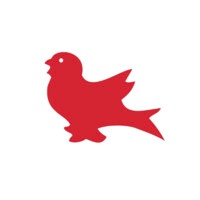
Grant and FundingOpen
Génome Québec — Commercialization Priming
Génome QuébecEarly-stage support for translating discoveries into commercial products
Eligible Funding
- From $50,000 to $100,000
- Up to 27% of project cost
Eligible Industries
- Professional, scientific and technical services
Types of eligible projects
Commercialization

Grant and FundingClosed
SODEC — Support for innovative initiatives
Société de développement des entreprises culturelles (SODEC)Support for Quebec cultural innovation projects
Eligible Funding
- Maximum amount : 500,000 $
- Up to 50% of project cost
Eligible Industries
- Information and cultural industries
Types of eligible projects
CommercializationTechnologyInnovationDigital Transformation
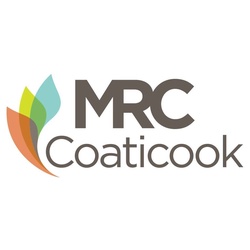
Loans and Capital investmentsOpen
MRC Coaticook — Local Fund FLI/FLS
MRC de CoaticookSupports economic development for enterprises in Coaticook region
Eligible Funding
- Maximum amount : 100,000 $
- Up to 50% of project cost
Eligible Industries
- Manufacturing
- Information and cultural industries
- Professional, scientific and technical services
- Health care and social assistance
Types of eligible projects
CommercializationConstruction and Renovation Business BuyoutDigital Transformation

Grant and FundingExpert AdviceOpen
MRC Joliette — Business Assistance Fund (FAE) – Stream 3
MRC de Joliette (CDÉJ)Financial support for innovation, export, succession, and professional services
Eligible Funding
- Maximum amount : 3,000 $
Eligible Industries
- Agriculture, forestry, fishing and hunting
- Manufacturing
- Professional, scientific and technical services
- Arts, entertainment and recreation
Types of eligible projects
CommercializationBusiness BuyoutInnovation

Loans and Capital investmentsClosed
Ville de La Tuque — Local investment fund
Ville de La TuqueLocal Investment Funds support local entrepreneurship in Quebec
Eligible Funding
- Maximum amount : 150,000 $
- Up to 50% of project cost
Eligible Industries
- All industries
Types of eligible projects
CommercializationConstruction and Renovation Business BuyoutDigital Transformation

Grant and FundingOpen
Musicaction — National marketing – Stream 2 - Stage activities
MusicactionSupport for national sound recording marketing through performances
Eligible Funding
- Maximum amount : 25,000 $
- Up to 50% of project cost
Eligible Industries
- Arts, entertainment and recreation
Types of eligible projects
Commercialization

Grant and FundingClosed
MRC Portneuf — Capitale-Nationale Region Fund (FRCN)
MRC PortneufPortneuf's investment fund supports regional economic development
Eligible Funding
- Maximum amount : 100,000 $
- Up to 50% of project cost
Eligible Industries
- Agriculture, forestry, fishing and hunting
- Manufacturing
- Information and cultural industries
- Administrative and support, waste management and remediation services
Types of eligible projects
CommercializationTechnologyConstruction and Renovation InnovationDigital Transformation
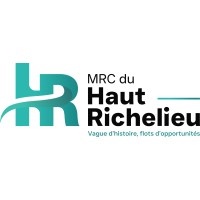
Loans and Capital investmentsOpen
MRC Haut-Richelieu — Local investment and solidarity funds (FLI and FLS)
MRC du Haut-RichelieuInvestment support for businesses in MRC Haut-Richelieu
Eligible Funding
- Maximum amount : 150,000 $
Eligible Industries
- Manufacturing
Types of eligible projects
CommercializationConstruction and Renovation Business Buyout
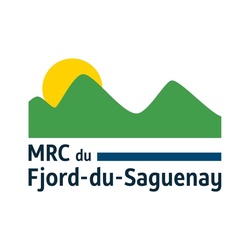
Loans and Capital investmentsOpen
MRC Fjord-du-Saguenay — Local FLI/FLS funds
MRC Fjord-du-SaguenayInvestment funds supporting economic impact businesses in Quebec
Eligible Funding
- Maximum amount : 150,000 $
- Up to 50% of project cost
Eligible Industries
- Manufacturing
- Professional, scientific and technical services
- Health care and social assistance
- Other services (except public administration)
Types of eligible projects
CommercializationConstruction and Renovation Business BuyoutInnovationDigital Transformation
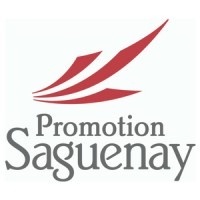
Grant and FundingOpen
Saguenay Promotion — FRR – Business Support
Promotion SaguenaySupports business startup, acquisition, expansion, and succession projects
Eligible Funding
- Maximum amount : 20,000 $
- Up to 50% of project cost
Eligible Industries
- Agriculture, forestry, fishing and hunting
- Mining, quarrying, and oil and gas extraction
- Utilities
- Construction
Types of eligible projects
CommercializationTechnologyHuman ResourcesBusiness BuyoutInnovation

Grant and FundingClosed
SODEC — Assistance for businesses in the arts and crafts sector — Stream 1
Société de développement des entreprises culturelles (SODEC)Supports Quebec companies in the arts and crafts sector to improve production and marketing.
Eligible Funding
- Maximum amount : 35,000 $
- Up to 50% of project cost
Eligible Industries
- Arts, entertainment and recreation
Types of eligible projects
CommercializationDigital Transformation
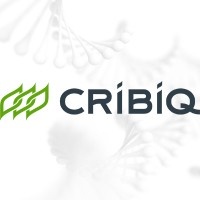
Grant and FundingClosed
Call for Projects on the Procurement & Conditioning of Forest Biomass for Bioenergy Production
Consortium de recherche et d'innovations en bioprocédés industriels au Québec (CRIBIQ)Forest biomass innovation for Quebec's renewable energy production
Eligible Funding
- Maximum amount : 200,000 $
- Up to 50% of project cost
Eligible Industries
- All industries
Types of eligible projects
CommercializationInnovation

Grant and FundingClosed
Fund to stimulate international business tourism – Stream 1 - Produce a bid book or business plan
Gouvernement du QuébecFSTAI stimulates international business tourism in Quebec
Eligible Funding
- From $5,000 to $200,000
- Up to 50% of project cost
Eligible Industries
- Arts, entertainment and recreation
Types of eligible projects
Commercialization

Grant and FundingClosed
SODEC — Assistance for businesses in the arts and crafts sector — Stream 2
Société de développement des entreprises culturelles (SODEC)Financial support for young Quebec artisan businesses for their development
Eligible Funding
- From $5,000 to $10,000
- Up to 50% of project cost
Eligible Industries
- Arts, entertainment and recreation
Types of eligible projects
Commercialization
Access over 4000 different funding opportunities
Try the helloDarwin platform today and find programs that fit your needs
The helloDarwin application makes it easy to unlock grants so your business can grow faster—with less hassle and more impact.

Loans and Capital investmentsOpen
Project Financing
Investissement Québec (IQ)Project financing for Quebec entrepreneurs
Eligible Funding
- Minimum amount : 50,000 $
- Up to 100% of project cost
Eligible Industries
- All industries
Types of eligible projects
CommercializationConstruction and Renovation Business BuyoutInnovation
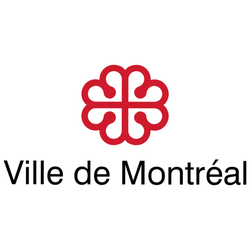
Grant and FundingSuspended
Open Innovation Subsidy Program for start-up companies
City of Montreal (MTL)Supports Montréal start-ups testing innovative solutions with partner organizations
Eligible Funding
- Maximum amount : 50,000 $
- Up to 50% of project cost
Eligible Industries
- Transportation and warehousing
- Information and cultural industries
- Health care and social assistance
- Accommodation and food services
Types of eligible projects
CommercializationInnovation
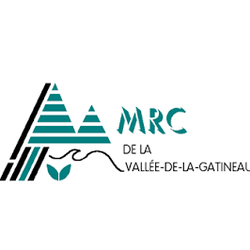
Loans and Capital investmentsOpen
MRC Vallée-de-la-Gatineau — Local Investment Fund (FLI) and Solidarity Fund (FLS)
MRC Vallée de la GatineauProgram fosters economic development and employment growth in Québec
Eligible Funding
- Maximum amount : 150,000 $
- Up to 50% of project cost
Eligible Industries
- All industries
Types of eligible projects
CommercializationConstruction and Renovation Business BuyoutDigital Transformation
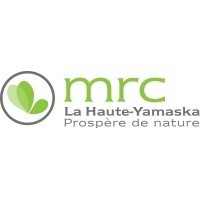
Loans and Capital investmentsOpen
MRC Haute-Yamaska — Local investment and solidarity funds (FLI and FLS)
MRC de La Haute-YamaskaFinancial support for local business sustainability and growth
Eligible Funding
- Maximum amount : 300,000 $
- Up to 50% of project cost
Eligible Industries
- Manufacturing
- Professional, scientific and technical services
- Health care and social assistance
- Other services (except public administration)
Types of eligible projects
CommercializationConstruction and Renovation Business BuyoutDigital Transformation

Grant and FundingOpen
innovÉÉ — Primo-adoptants
innovÉÉSupports collaboration between startups and early technology adopters
Eligible Funding
- Maximum amount : 75,000 $
- Up to 60% of project cost
Eligible Industries
- Professional, scientific and technical services
Types of eligible projects
CommercializationTechnologyInnovation

Grant and FundingOpen
MRC Marguerite-D'Youville — Business Support Fund – Stream 3
MRC de Marguerite-D'YouvilleBusiness support for enhancing operational skills and sales
Eligible Funding
- Maximum amount : 3,000 $
- Up to 50% of project cost
Eligible Industries
- Retail trade
- Accommodation and food services
Types of eligible projects
CommercializationHuman Resources

Grant and FundingClosed
Musicaction — Title production and promotion
MusicactionProgram funds production of Francophone and Indigenous sound recordings
Eligible Funding
- Maximum amount : 25,000 $
- Up to 50% of project cost
Eligible Industries
- Arts, entertainment and recreation
Types of eligible projects
Commercialization
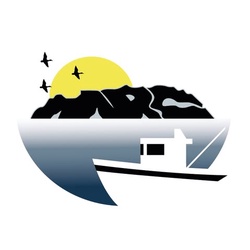
Grant and FundingLoans and Capital investmentsOpen
MRC Minganie — Local Investment and Solidarity Funds (FLI-FLS)
MRC de MinganieFinancial and technical support for startups and business growth
Eligible Funding
- No Condition
Eligible Industries
- All industries
Types of eligible projects
CommercializationBusiness Buyout

Grant and FundingClosed
MRC L'Islet — Fund to help architectural design companies conquer new markets
MRC de L'IsletFunding for architectural design businesses entering new markets
Eligible Funding
- Maximum amount : 50,000 $
- Up to 80% of project cost
Eligible Industries
- Professional, scientific and technical services
Types of eligible projects
Commercialization

Grant and FundingOpen
PME MTL — Business Diversity Support Program for the Southwest
PME MTLSupport for establishing new businesses in Montreal’s Southwest sector
Eligible Funding
- From $10,000 to $20,000
Eligible Industries
- Retail trade
- Other services (except public administration)
- Public administration
Types of eligible projects
Commercialization

Grant and FundingOpen
MRC La Matanie — Community Development Program - Special Collaborations Stream
MRC La MatanieFinancial support for business development and community projects
Eligible Funding
- Maximum amount : 250,000 $
Eligible Industries
- Retail trade
- Accommodation and food services
- Other services (except public administration)
- Public administration
Types of eligible projects
CommercializationBusiness BuyoutInnovation

Grant and FundingClosed
Assistance program for venues
Société de développement des entreprises culturelles (SODEC)SODEC aids Quebec venues for diverse music scene vitality
Eligible Funding
- Maximum amount : 50,000 $
- Up to 50% of project cost
Eligible Industries
- Arts, entertainment and recreation
Types of eligible projects
Commercialization

Grant and FundingClosed
Biofood market development program — Component 1
Ministry of Agriculture, Fisheries and Food (MAPAQ)Quebec agri-food industry support for institutional market access
Eligible Funding
- Maximum amount : 750,000 $
- Up to 80% of project cost
Eligible Industries
- Agriculture, forestry, fishing and hunting
Types of eligible projects
Commercialization

Grant and FundingOpen
MRC Charlevoix-Est — Business Support
MRC Charlevoix-EstSupport for creating and sustaining businesses in Charlevoix-Est
Eligible Funding
- Maximum amount : 150,000 $
- Up to 50% of project cost
Eligible Industries
- All industries
Types of eligible projects
CommercializationConstruction and Renovation Business Buyout

Grant and FundingOpen
Musicaction — Canvassing
MusicactionMusic professionals' travel support for market development
Eligible Funding
- Maximum amount : 10,000 $
- Up to 50% of project cost
Eligible Industries
- Arts, entertainment and recreation
Types of eligible projects
Commercialization
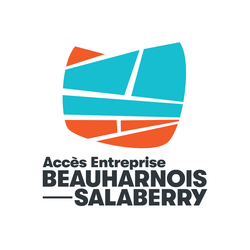
Grant and FundingOpen
MRC Beaharnois-Salaberry — Signature Innovation Project (PSI)
MRC Beauharnois-SalaberrySupports innovative regional development and waterfront public spaces
Eligible Funding
- Maximum amount : 1,584,870 $
- Up to 80% of project cost
Eligible Industries
- All industries
Types of eligible projects
CommercializationTechnologyInnovation

Loans and Capital investmentsOpen
MRC Beaharnois-Salaberry — Local Investment Fund (FLI)
MRC Beauharnois-SalaberrySupport for business development and job creation in Beauharnois-Salaberry
Eligible Funding
- From $5,000 to $150,000
- Up to 50% of project cost
Eligible Industries
- All industries
Types of eligible projects
CommercializationTechnologyEnvironment and ClimateHuman ResourcesBusiness BuyoutInnovationDigital Transformation

Loans and Capital investmentsOpen
DEL — Commercialization Loan
Développement économique de l'agglomération de Longueuil (DEL)Supports business commercialization and market entry activities
Eligible Funding
- Maximum amount : 150,000 $
- Up to 50% of project cost
Eligible Industries
- All industries
Types of eligible projects
Commercialization
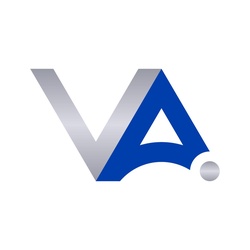
Grant and FundingOpen
Rio Tinto Aluminium Valley Fund
Société de la Vallée de l’Aluminium (SVA)Support for aluminum project development in Saguenay-Lac-Saint-Jean
Eligible Funding
- Maximum amount : 25,000 $
- Up to 50% of project cost
Eligible Industries
- Manufacturing
Types of eligible projects
CommercializationEnvironment and ClimateInnovation

Grant and FundingClosed
Musicaction — Support for emerging artists – Production assistance
MusicactionCanadian grant for emerging artists' digital music production
Eligible Funding
- Maximum amount : 5,000 $
- Up to 75% of project cost
Eligible Industries
- Arts, entertainment and recreation
Types of eligible projects
Commercialization

Grant and FundingClosed
Génome Québec — Genomics Integration Program – Human Health
Génome QuébecEnhances human health innovation through research collaboration
Eligible Funding
- From $50,000 to $200,000
- Up to 50% of project cost
Eligible Industries
- Health care and social assistance
Types of eligible projects
CommercializationInnovation

Grant and FundingOpen
Musicaction — National collective promotion
MusicactionPromotes Canadian Francophone music through innovative projects
Eligible Funding
- Maximum amount : 400,000 $
- Up to 75% of project cost
Eligible Industries
- Information and cultural industries
- Arts, entertainment and recreation
Types of eligible projects
Commercialization
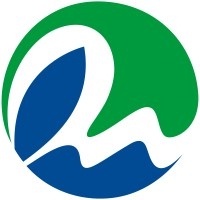
Loans and Capital investmentsOpen
Rouyn-Noranda — FLI Succession
City of Rouyn-NorandaFunding tools for enterprise growth in Rouyn-Noranda
Eligible Funding
- Maximum amount : 250,000 $
- Up to 5% of project cost
Eligible Industries
- Agriculture, forestry, fishing and hunting
- Manufacturing
- Other services (except public administration)
- Public administration
Types of eligible projects
CommercializationConstruction and Renovation Business BuyoutDigital Transformation

Grant and FundingLoans and Capital investmentsClosed
MRC Les Basques — Local Investment Fund (FLI) / Local Solidarity Fund (FLS)
MRC Les BasquesEntrepreneurial support and financial aid for businesses
Eligible Funding
- Maximum amount : 150,000 $
- Up to 50% of project cost
Eligible Industries
- Retail trade
- Information and cultural industries
- Professional, scientific and technical services
- Health care and social assistance
Types of eligible projects
CommercializationConstruction and Renovation Business Buyout
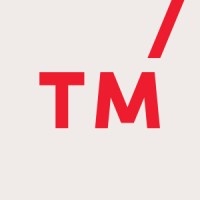
Grant and FundingClosed
Assistance program for Festivals, Events and Museum exhibitions
Tourisme MontréalTourism Montreal supports festivals enhancing destination appeal
Eligible Funding
- Minimum amount : 10,000 $
- Up to 10% of project cost
Eligible Industries
- Arts, entertainment and recreation
Types of eligible projects
Commercialization
Find similar grants
By Funding Type
By Business Size
By Service
By Audience
By Industry
Education Grants in Quebec
Grants and Funding for Culture in Quebec
Grants and Funding for Financial Services in Quebec
Grants and Funding for Green Manufacturing and Decarbonization in Quebec
By Industry Subsectors
By Administrative Region
Grants and Funding in Abitibi-Témiscamingue
Grants and Funding in Bas-Saint-Laurent
Grants and Funding in Capitale-Nationale
Grants and Funding in Centre-du-Québec
Grants and Funding in Chaudière-Appalaches
Grants and Funding in Côte-Nord